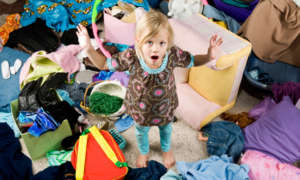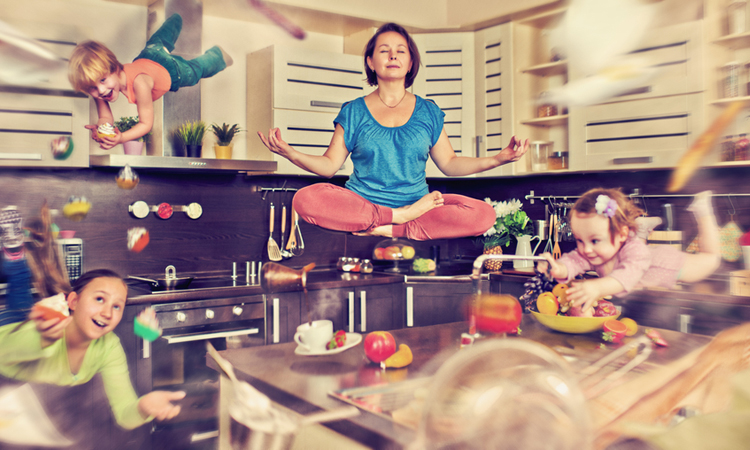“Getting rid of the clutter in my home is like an emotional cleanse. For me, a clean home equals a clear mind.”
–Rose Caiola
Tidying up can organize your things and your life
I’ll admit it: I’m a walking stereotype, the messy creative. The unkempt writer. The unorganized, free-spirited wanderer. Clothes scattered on my floor are customary, and you’ll rarely catch me with matching socks. No matter how hard I try, I can’t seem to keep my room clean for more than two days. I have a hard time finding things and an even harder time remembering the name of that awesome restaurant where I ate last week.
I knew I’d need to change my ways if I wanted a more organized life, and after some recent major work-life changes, I decided to begin by putting my life in order.
After hearing much praise surrounding Marie Kondo’s book, The Life-Changing Magic of Tidying Up, I picked up a copy. Kondo runs a business in Tokyo helping clients transform their cluttered homes into spaces of serenity and inspiration. Her book outlines her Japanese art on tidying, which not only resonates on a physical level, but will also flow naturally into your personal life.
 Tidying has many health benefits, and being untidy can cause an array of mental health issues, such as anxiety. To change, it has to start with the person, not the things, according to David F. Tolin, founder and director of the Anxiety Disorders Center in the Institute of Living in Hartford. “It isn’t a house problem, it’s a person problem,” Tolin told The New York Times. “The person needs to fundamentally change their behavior.”
Tidying has many health benefits, and being untidy can cause an array of mental health issues, such as anxiety. To change, it has to start with the person, not the things, according to David F. Tolin, founder and director of the Anxiety Disorders Center in the Institute of Living in Hartford. “It isn’t a house problem, it’s a person problem,” Tolin told The New York Times. “The person needs to fundamentally change their behavior.”
To adjust your outlook on how you keep your things in order, you must evaluate, discard and reorganize. Here are Kondo’s basic principles of how to keep a tidy home to enjoy a life that’s in order, from The Life-Changing Magic of Tidying Up.
When you put your house in order, you put your affairs and past in order, too
Kondo emphasizes that most organization practices nowadays have a great chance of rebound. You get inspired, clean and organize, but then find your house in disarray two weeks later. Her method really slows down the process of tidying, so you only have to do it once. Her principles focus solely on your things, but she has received abundant praise from clients on how she’s made an impact on their lives, such as:
Your course taught me to see what I really need and what I don’t. So I got a divorce. Now I feel much happier.
I’m delighted to report that since cleaning up my apartment, I’ve been able to really increase my sales.
I finally succeeded in losing ten pounds.
You can’t tidy if you’ve never learned how
You’ll find sewing, cooking and physical education classes almost anywhere, in any school. But what about cleaning and tidying?
“When it comes to tidying, we are all self-taught,” Kondo says. Some may have the organization gene, while some of us don’t. Attempting to stay tidy without any instruction can be a recipe for disaster. Consider this book your Tidying 101 class.
Discard, discard, discard
 As in life, to be happier and healthier, sometimes we need to get rid of the things, relationships or jobs that aren’t serving us anymore. But what about that sentimental card Grandma wrote to you five years ago? Guilt is a common and unhealthy ingredient that gets in the way of how we think. Kondo teaches how to overcome it.
As in life, to be happier and healthier, sometimes we need to get rid of the things, relationships or jobs that aren’t serving us anymore. But what about that sentimental card Grandma wrote to you five years ago? Guilt is a common and unhealthy ingredient that gets in the way of how we think. Kondo teaches how to overcome it.
“No matter how wonderful things used to be, we cannot live in the past. The joy and excitement we feel here and now are more important,” Kondo writes. “To put your things in order means to put your past in order, too. It’s like resetting your life and settling your accounts so that you can take the next step forward.”
That letter from an ex written ten years ago, or a CD you haven’t listened to in 12 years, already served its purpose. After receiving the item and experiencing the joy it brought, the item has served its purpose, Kondo says. You can let go of the guilt, thank the item for the joy it brought you and discard.
Only surround yourself with things you love
Can you imagine waking up, walking to your closet and being greeted by only clothes you truly love? Getting dressed in the morning would be much more pleasant! Kondo’s main philosophy is this: go through each and every one of the items and pieces of clothing you own and ask yourself: does this spark joy? If it doesn’t, then why on earth do you still have it? It’s not only taking up space, but it’s not making you happy. If you’re surrounded by only things you love, your life will have more meaning, and you will be happier.
The specific instructions of how to go through these processes are detailed in the book. After reading, I donated two trash bags full of clothes, one grocery bag full of books, consolidated loose papers into two distinctive folders, and now I know where everything is. I never knew a slob like me could ever be remotely organized. If I can do it, anyone can.
After I conducted my house purge, I also started taking care of things I had been putting off, such as seeing an acupuncturist, paying late bills and fees, and beginning new hobbies. I encourage you to give tidying a try, and see what it brings you.



